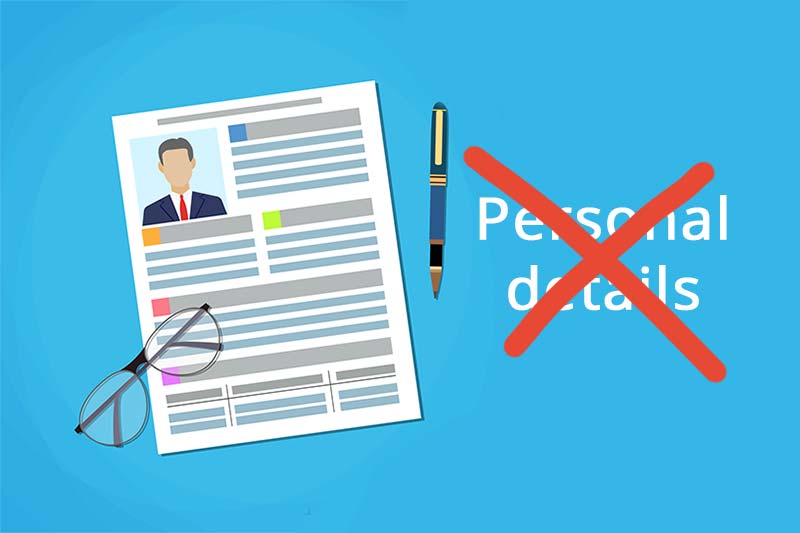The UK’s population is changing. The rise in over 50s means the number of those below 50 will reduce significantly over the coming years. The Government have predicted that by the mid 2030s half of all adults in the UK will be over 50 years of age (source: DWP).
According to Age Concern, older workers are at the highest risk of redundancy. This reflects a 2014 report by Business in the Community which estimated that up to 1.4 million people aged 50 – 69 had left the workplace involuntarily during the previous eight years.
In addition to those who have lost their jobs and are struggling to find new positions, the woeful state pension, poorly performing private pensions and the rising cost of living has seen many previous retirees returning to work. In the UK, the proportion of 50 to 64-year-olds in work has climbed to about 71 per cent from 60 per cent since 2000, whilst the number of people working beyond 65 has doubled to about 10 per cent (source: ft.com).
Yet finding a job is not easy for older generations. The Business in the Community report shows there were more than one million people aged 50+ out of work who would have been willing to work if the right opportunity arose, and 26% of people aged 50 – 64 were jobless but would have liked to work (source: Business in the Community ‘The Missing Million’) This is echoed in the Government’s Fuller Working Lives strategy (source: DWP).
“It is unacceptable that the nation is wasting the talents of more than one million people aged over 50 who are out of work but would be willing to work if the right opportunity arose.” –
‘Older people and employment’, Woman and Equalities Committee
Age discrimination is against the law and shouldn’t still happen – but it does. So how can over 50s improve their employment chances? By understanding employers’ misconceptions of older workers and knowing how to overcome them.
Tackle employer misconceptions

Understanding perceptions of older workers can help you level the playing field and even gain a competitive advantage.
There are a range of misconceptions employers have about older workers. Tackling these before you start applying for jobs can not only put you on a level playing field with younger workers, but it can give you a competitive advantage over your less experienced competition.
(1) Productivity
One of the major misconceptions identified by the Woman and Equalities Commission is that older people are less productive. But as Yvonne Sonsino, Co-Chair of the Fuller Working Lives Business Strategy Group explains, “having an age-diverse team can enhance your bottomline profits and productivity results”. This is because older workers bring experience and skills and “tend to have better people skills and better anger management, so, overall, they are creating a new dynamic in the team, and these spillover effects stabilise the team.”
“With age comes dependability, wisdom, fortitude, a strong work ethic, dedication, promptness, a wealth of knowledge, resilience, plus organisational and communication skills. You may also have good customer service skills and be able to advise and train younger staff.”
Julie Measures, Saga.
With this in mind, it makes sense for you to focus your CV on these benefits, highlighting key accomplishments throughout your career. In addition, providing evidence for soft skills that are highly desirable but can sometimes be lacking in those with less experience can give you a competitive advantage over other applicants.
Find out more:
Bonus tip 1: Don’t clutter your CV
Although you’ve got a lot to offer, it’s important to keep your CV relevant and specific to the role you’re applying to. Every time you send out a CV, it should be tailored to the exact job advert that you’re interested in. The downside of having so much work experience is that your CV can come across as cluttered. You can avoid this by ‘de-cluttering – ensuring that you pick out the specific skills and experience each employer is looking for, and highlight these on your CV.
Find out more:
The full breadth of your experience can be set out in more detail on your Linkedin profile (more on this below).
Bonus tip 2: Use an ATS-friendly CV template
Many larger companies use ATS software to filter through the insane number of job applications they receive every day. Although you may not know whether or not your target company is using an ATS, it makes sense to choose an ATS-friendly CV template just in case. These templates tend to have a fresh, clean layout with less clutter anyway, which is particularly desirable for candidates who have more to include. You can view our free ATS-friendly Word CV templates here, or see our full Word CV template collection here.
(2) Knowledge
Another concern employers have when hiring an over-50 candidate is that their knowledge may be out-of-date because they may have completed their studies many years ago.
You can counteract this by ensuring you keep your knowledge up-to-date with Continued Professional Development (CPD). In some roles (such as for a solicitor or Chartered Legal Executive), CPD is mandatory and a great opportunity to ensure your knowledge is fresh. However, for other roles, you’ll have to take responsibility for your own development by arranging appropriate training. You should then provide details on your CV of this training, to quash any concerns employers might have.
(3) Skills
It is not a misconception that many older people lack digital skills. In fact, despite its desire to be at the forefront of the digital economy, the UK is lagging behind in its digital competitiveness.
Most studies focus on internet usage which is increasing amongst older generations (source: ONS). However, there are plenty of other IT skills required for successful navigation of the workplace. The IT skills an employer needs will be job-specific to some extent so a good way to find out what’s typically expected is to browse job adverts in your area of interest. However, generally for most roles you’ll often find the employer simply requests ‘IT literacy’ or similar.
For almost all roles, employers typically expect familiarity with:
- Microsoft Office including Word, Excel and PowerPoint
- Email systems such as Gmail and Microsoft Outlook
- Use of internet to find information
In addition some roles may require you to:
- Use Customer Relationship Software
For some administrative roles and many marketing-type roles, you may need awareness of:
- Know how to use social media in a business context (e.g. update the Company’s social media pages and create a post)
- Email automation software such as Mailchimp and Constant Contact
- Analytics
- Content Management Systems (such as WordPress)
If you don’t have the ability to use these packages to an intermediate level, it may be worthwhile undertaking appropriate training which can then be included on your CV to show your IT literacy.
If you’re considering retraining, you may like to review the 10 most in-demand skills of 2019, according to LinkedIn.
(4) Relevance
Another concern for employers with over 50s is that they don’t have their finger on the pulse.
Keeping up to date with your industry is essential if you want to prove that you’re still relevant in your field of expertise. To do this, you’ll need to immerse yourself in your industry – read industry publications and websites, become an active user on Twitter and LinkedIn amongst industry circles, sharing influencer content and contributing to the discussion (be sure to include a link to your Twitter profile in your CV!)
Pew research found just 15% of 50-64 year olds use Twitter, with just 8% of those aged 65 and above on the platform. Further only 24% of over-50s use LinkedIn. If you ignore these platforms, you’ll be ignoring industry developments and opinions that reflect current best practice and will help show your understanding is up-to-date.
Avoid early discrimination

Leave off unnecessary personal details – they have no bearing on your ability to do the job.
Don’t give employers the chance to discriminate against you early in the process – leave your age off your CV and don’t include a photo. You should also avoid any other unnecessary personal information that might encourage other types of discrimination, such as your nationality, race, religion, marital status, family details, sexual orientation, whether you’re pregnant, details of disabilities, health issues and so on. If you’re not sure of your rights in this respect, read our guide ‘Was I discriminated against during the recruitment process?‘
Build an online profile
Most older people have the benefit of more work experience but with just two pages on which to present your CV, you’ll be somewhat pushed to fully showcase this to prospective employers. LinkedIn allows you to create a far more comprehensive profile supported by endorsements and recommendations from your network. Having a comprehensive LinkedIn profile increases your chances of getting an interview by a staggering 71% (by contrast, having a ‘bare bones’ profile actually decreases your chances). Be sure to include a link to your profile in your CV!
Find out more:
Network

Networking – both online and offline, can help you discover opportunities and garner recommendations.
Most people use websites that aggregate job vacancies such as Indeed or Monster to find available roles. However, whilst these are very convenient, it’s important to appreciate that the majority of jobs don’t appear on these sites!
Around 38% of jobs aren’t published on these sites, according to Jonathan Blaine (who was keen to dispel the ‘80%’ figure that is too often bantered around).
“And yet most people — they are spending 70 or 80 percent of their time surfing the net versus getting out there, talking to employers, taking some chances [and] realising that the vast majority of hiring is friends and acquaintances hiring other trusted friends and acquaintances,” says Matt Youngquist at Career Horizons.
“That personal connection is especially important now. With so many people applying for jobs, it’s hard to get noticed,” explains Wendy Kaufman at NPR.
A huge advantage that a lengthy career history brings is a huge network of contacts and LinkedIn is the perfect place to reconnect with these. By creating a comprehensive network of all your past and present contacts, you’ll hear about more career opportunities and you’ll also be able to ask for the endorsements and recommendations that will help your profile stand out from the crowd.
Here’s a video from Sean Seymour at 358Studios which explains how to ask for a recommendation on Linkedin:
Summary
Over-50s face additional challenges when looking for work. These can be overcome by tackling employer misconceptions and stereotypes. You can achieve this by:

Finding a job is a daunting prospect with redundancy on the cards. I did not think I would find myself in this position – I thought I’d be looking forward to retiring in a few short years. In any case, thank you for your thoughts and guidance. I hope they help me on this new journey.